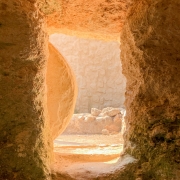For even the Son of Man did not come to be served, but to serve, and to give his life as a ransom for many.”
Mark [10:45]
The Healing Power of Serving
He is eighty-five and all alone. Each Sunday, he goes to church and looks for something to do. The woman in charge of the clothing ministry, Peggy, gave him clothes to fold that her posse could hand out. He sat down and folded the clothes. Then he started coming during the week. Every week he folded more clothes.
He had served in Vietnam and came home an unwanted vet. He raised a family and lived a good life. Then he retired, his wife died, and his kids moved away. He started to decline with no one to help raise, work for, or tend to. Sensing he had to move and do something, he decided to go to church. A small church but with an active congregation. Soon he was folding clothes and getting involved.
His days were no longer dull but meaningful. His health decline slowed, and he had new friends. Life was no long drudgery; he was back in the game.
The women who helped the man are called Peggy’s Posse. Like the Vietnam vet, they were also drifting a few years earlier. Peggy, the group leader, asked the minister to give them something to do. The minister told them about a clothing initiative he wanted to start. Peggy talked to her friends, and soon shut-in women were at the church organizing clothing and distributing it to people who needed them.
They quickly started clothing drives to help those with scarce resources. First, the group reached out to local schools, who promptly responded. Next, they opened the church to receive clothing that would otherwise be discarded. Soon they had racks to put clothing on. Finally, they used the church van to distribute the clothing throughout Atlantic City. In a short period, they had a well-run machine.
Others joined in, like the local police and other citizens from their community. But it was also a time of community for Peggy’s posse. On the days they worked throughout the church, they shared stories and were in communion. They had developed a purpose and were joyous.
So why is it that real joy is found in serving? We have all heard it is better to give than receive. Jesus gives us a clue in His own ministry.
Jesus had often told the twelve Apostles, For even the Son of Man did not come to be served, but to serve, and to give his life as a ransom for many.” (Mark [10:45]) His purpose wasn’t to be waited on but to help others. Also, what’s interesting in this quote by Jesus is that he called himself the Son of Man. While Jesus is commonly called the Son of God, he never stated the same. Jesus always referred to himself as the Son of Man.
When Jesus visited Jerusalem on Palm Sunday, he rode in on a young donkey, which was considered the lowest of all farm animals. When other kings rode into a city, they rode in on majestic horses to show their power. In Jesus’s case, he rode on a donkey to show his humbleness.
It is easy sometimes to want to be served, and it is often nice to have someone wait on you. But Jesus tells us it is far better to serve than be served. Jesus, who created us, created us in God’s image. Through Jesus, we can see serving is in the image of God.
Peggy, her posse, and the Vietnam veteran rekindled their lives not by receiving but by serving. They went from shut-ins to community organizers. By producing fruit in their lives, they found Joy. Despair was replaced with wondering how they were going to get things done.
When they handed out the clothing, they experienced a joy that created tears. Each of them will tell you of their thankfulness they could help. When they heard words of blessings from those they helped, it gave them a sense of purpose. The exact purpose Jesus instilled in them.
It might seem contradictory that working hard for others is actually receiving. For example, one of my favorite people, Mead, tells me his favorite time at work is when he has helped a customer. Or he will tell me about the unique sense of joy when he uses his days off doing something for someone else.
Jesus served and also instilled in us the desire to serve. By being made in the image of God, it is what we were made to do.



